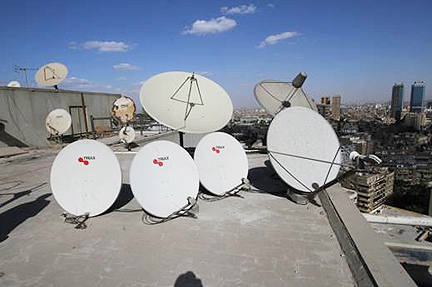Satellite communications provider NSSLGlobal has revealed the part it played in helping to keep the international news supplier the Associated Press (AP) communicating during the Egyptian uprising. Having worked with the AP for almost a decade, NSSLGlobal is well aware of how critical a robust communication solution is in times of crisis. During the Egyptian revolt, it was essential that NSSLGlobal could be trusted upon to provide flexible options that reflect the fast changing circumstances in the country and the needs of AP.

he dishes avoided detection by the Egyptian security forces due to their inaccessible position on the roof of the AP building"
In addition to enabling the news supplier to send live and packaged video, the AP also used the connection to transmit photographers’ stills, written news copy by journalists, and radio reports. AP staff also used the Broad-IP system to stay in touch with friends and family outside of Egypt via email, Facebook and Twitter, providing much needed reassurances of their safety. To help manage this increased usage, NSSLGlobal twice increased the capacity of the Broad-IP connection; first to a dedicated 512/512kbps connection and then a short time later to a 4mbps/1mbps for both upload and download traffic. These package changes were made within hours of the Customer’s request and required no manual intervention by the customer or additional hardware.


